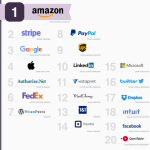Google Still Leads For Search, But Other Players Worth Considering
While Google remains the most important and dominant search engine, as it transitions into machine learning with RankBrain, marketers should not neglect other sources of traffic. Emerging search sites like SkyNet, Pinterest, Yelp, YouTube or Facebook imply that whether it is the artificial intelligence of RankBrain or organic searches, quality content and solid site architecture still count for a lot.

While RankBrain helps Google match results to searches better by seeing what pages are actually being consumed — regardless of page rank or authority, other factors like video, privacy, spam, and mobile devices are also changing the face of search. The Content Marketing Institute’s recent lecture by founder and former CEO of Moz, Rand Fishkin noted a series of major themes driving search today.
Content matters most
With Google as the dominant search engine in the world, it will continue to drive what and how marketers approach SEO, Fishkin notes.
While Google is more focused on searchers, not marketers, the onus is on marketers to get more in touch with who their ideal visitors are. Learn what they want so they can reach out to them using the right content, terms, and expressions that meet their needs, not the needs of the company.
In other words, make user experience the cornerstone of the companies SEO efforts by generating content ten times better than the competition and Google will respond in kind.
Visuals improve rankings
Visuals help as well since Google is now ranking images, the expert suggests. The idea is to be on the right platform for the search engine results page (SERP) that matter most. So, for video: YouTube, Facebook, and Vimeo; for e-commerce: Google shopping, Amazon, Etsy, and eBay; for apps: iTunes and Google Play, etc. Google is getting really good at matching searcher intent to returns (type in “circle of big rocks” and you get Stonehenge, for example).
Increasingly, Google is matching searcher intent to returns. This is good for users but not so much for marketers.
Intent makes direct keyword matching less of a competitive advantage so marketers now try to rank across the pantheon of terms and keyword strings searchers will likely use to find them. Also, how the keywords are used on a website’s pages matter. So context counts even more than ever.
Google+ in decline, watch Twitter
The demise of Google+ is clear, Fishkin notes, and Twitter has replaced Google+ as Google’s primary social result. Initially, Google defined the service as a social network, but when it didn’t work, the company referred to it as “a social layer across all of Google’s services.” Apparently, the social foundation of Google+ is problematic. Google just pushed (almost forcefully) the creation of a Google+ account in order to use other products and services such as when publishing a comment in YouTube. Marketers should be paying closer attention to how Twitter influences the keywords and SERPs they care about: engagement and “recency” govern Google’s display of Tweets, for example, so use these two insights to one advantage, he suggests.
Determining SERPs
Basically, a good search engine results page (SERP) today means that searchers don’t bounce from their first choice, but according to Google’s own engineers, they don’t fully understand what is going on. In the future, it may be that thousands or even millions of algorithms will determine SERPs.
For marketers this means focusing resources on pages that are performing well and even hiding pages with high bounce rates from Google so the whole website performs better. “For marketers, big things include focusing on signal-to-noise so bad pages on ones site aren’t going to drag down the whole site,” said Fishkin.
(22)











